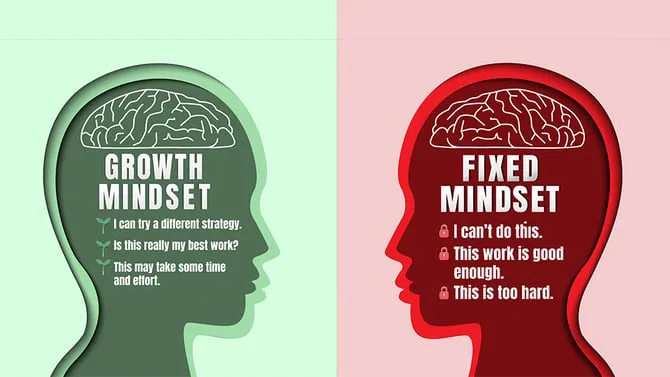
We all have mindsets; learned attitudes and behaviours established over time. However, we can also develop new mindsets as we travel down new paths of life. Some mindsets are more helpful than others. This post is about shedding old mindsets and cultivating new ones that help you have a richer, more fulfilling life. It is not just about encouraging you to think differently, it is about taking action on the world around you, propelling you to break new ground with ease rather than breaking your head against it as usual.
There are always new discoveries to be made. For example, you won't want to miss the next revelation that there's no one way to change bad habits. Or that risk-taking is not just for kids. Or that mavericks discover how to develop grit--and how grit can lead to greatness. And penicillin wasn't just a wild hunch, but came from a mind obsessed and intrigued with the question, "Why?"
How many times have you been told to "change your mindset"? Do you find yourself saying, "I'm trying" or "I know I need to change my mindset but…"? Well, what if it were easy and practical? What if you could take this idea, this concept of a mindset, and shake it up. Uncover the mystery behind the common learned patterns we all fall into. Then go on a mission of discovery. Shine a light on these limiting patterns and ask "why?" Challenge old beliefs and overcome learned behaviour with practical thoughts that encourage ongoing growth.
Every problem or difficulty in your life, whether it's personal or professional, is an opportunity to leverage your most valuable mindset asset: curiosity.
Mindsets help you stay sane during periods of uncertainty, change, or ambiguity. The human mind loves to jump to conclusions, but it's also flexible enough to be shaped by evidence. The good news is that you can shape your own mindset and greatly influence your perceptual filters.
The next time you are debating an issue or arguing with a friend, remember: Be humble. Tolerate ambiguity. Move from certain knowledge to a more measured conclusion by refining your models of the world and what it's going to do. Think in terms of odds rather than certainties. Develop a better understanding of the patterns that connect ideas, for only then can you build your own mental models that help you infer what will happen and when. "Be"- Mindful; Own your own thoughts; Figure out how you think; Know when and where you have biases; Seize control of your mind-; "Humble"- admit mistakes and limitations; Learn from history, incorporate current events in learning curve; Take advantage of outside ideas as long as they pass tests (hold up in face of criticism) - pay attention to those with other perspectives-- be aware there are good ideas everywhere and not just in your lab/school/business; "Tolerate Ambiguity"- stay calm and focused under pressure--dealing with ambiguity is hard work but it is necessary for learning how the system works before being able to predict it; "Adapt to new facts"--construct models that explain what happened and fit new data into them.
Dragonflies use their unique multi-faceted vision to see in all directions. Are you able to take in a 360 view and see the big picture? Use the multi-faceted vision of a dragonfly to see the big picture and little details all at once. Always take a broader view of life, that is brimming with possibilities.
If you are striving for perfection, making every hair on your head perfect, there is a learning activity called "Pursue the Occurrent". It implies being present at the moment and doing the practice rather than focusing on the result. Pursuing occurrent behaviour generates clarity within yourself and doesn't require great skill.